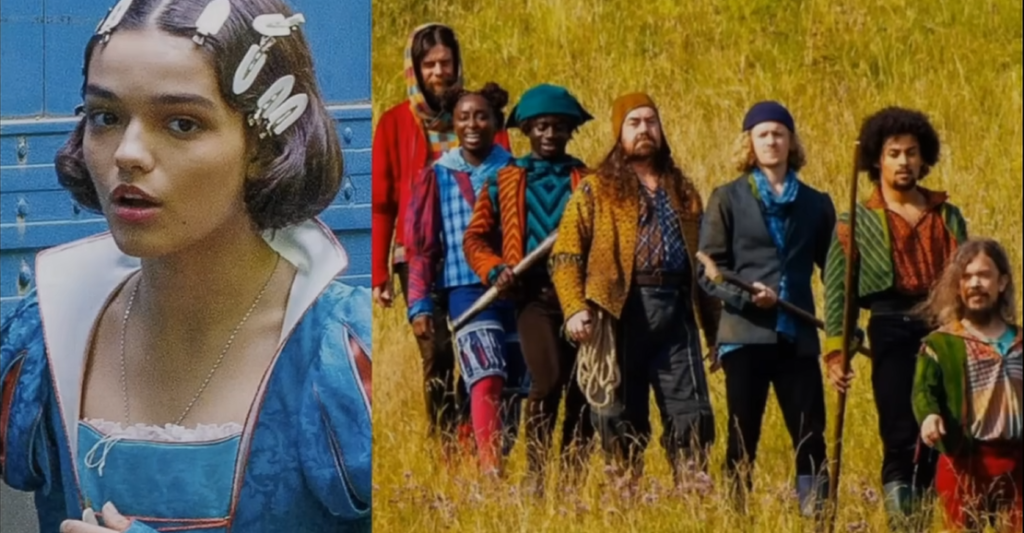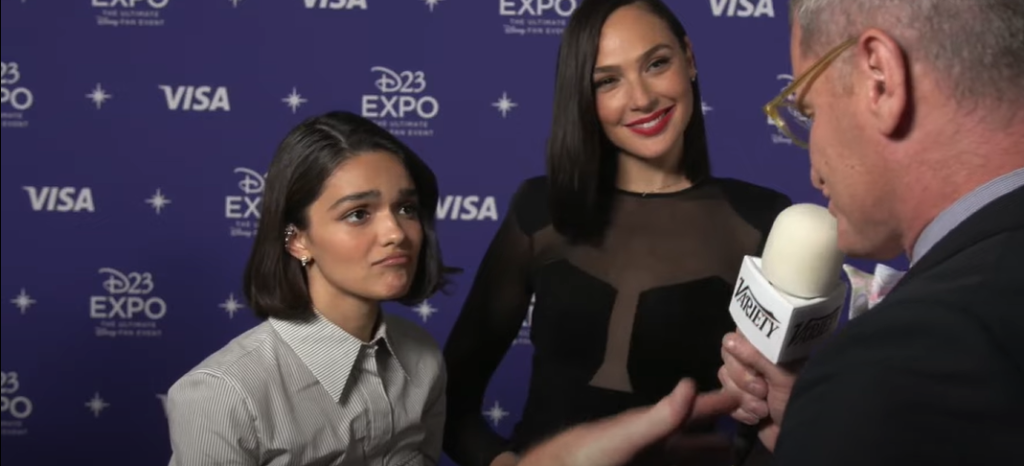
To no one’s surprise, Disney’s upcoming live-action adaptation of “Snow White” is shaping up to be yet another left-wing, woke attempt to right the perceived wrongs of the original.
“Snow White” was Disney’s first feature film, and it contained elements that do not fare well with the Left’s sensibilities almost a century later. Critics accuse the original film of being misogynistic since Snow White cleans and cooks for seven men, and promotes sexual assault when the prince kisses a sleeping Snow White without consent.
The film’s lead actresses, Rachel Zegler and Gal Gadot, who portray Snow White and the Evil Queen, respectively, have not been shy about how the upcoming movie will change and penalize the 1937 classic for not holding up to 2023’s woke standards.
“[Snow White] is not going to be saved by the prince. She’s the proactive one and she’s the one who sets the terms. [This] is what makes it so relevant to where we are today,” said Gadot in an interview with Entertainment Weekly.
People have not been enthusiastic about this approach, one of whom said the reinterpretation of Snow White is “taking a character who was a progressive, modern woman in the 1930s … and instead of building off that success, having a lead actress actively go in the press and disparage the original at every opportunity she gets.”

Disney’s older, original animated retellings of the Brothers Grimm’s fairytales packaged the moral lessons from the original stories in a more family-friendly medium. Now, their recent line of live-action remakes reimagines these animated classics, but they are dull and watered down by political correctness and devoid of whimsy or charm.
The case of the “Snow White” remake does not look like it’s going to be any different, and Disney has some explaining to do about the changes.
Cultural Appropriation
A change no one on the “Snow White” team has explained yet is the racial appropriation of casting a Latina actress in a specifically white role. It’s in the character’s name, after all!
The original text of the 19th-century tale describes the princess as having “skin as white as snow, lips as red as blood, and hair as black as ebony.”
If Disney is truly committed to presenting “genuine, authentic, and respectful storytelling” as stated in its DEI mission statement, then where does casting a Latina woman fit in?
Co-chairman of Disney Entertainment Dana Walden made clear Disney’s commitment to diversity when saying the company “received some incredibly well-written scripts that did not satisfy our standards in terms of inclusion.” The company allegedly passes up on scripts that do not adhere to its diversity guidelines.
Snow White and the Six Magical Creatures and One ‘Dwarf’
The movie swaps the iconic seven dwarves with seven “magical creatures,” only one of whom is a little person.
Despite famous little person actor Peter Dinklage’s disdain for the dwarf characters as simple cave dwellers, many other people with dwarfism disapprove of the change.
Dylan Postl, a professional wrestler best known for his days in the WWE as “Hornswoggle,” criticized the casting for getting progressivism backward. He pointed out that the change puts more little people out of work when considering the number of actors and stunt doubles that could’ve gotten work from being cast.
“Now you’re talking multiple actors of my stature that don’t get these major roles, and why?” Postl said. “What’s the reasoning? Because we’re supposed to be progressive and we’re supposed to just not view them as that? These are heroes. All of these dwarves took care of Snow White. … They all had seven different characteristics for seven different actors from my community, and I don’t feel it’s right that that got taken away from us.”
Stunt performer Jason Acuna, also known as Wee Man, commented on why he disagrees with this change: “What they’re doing, it’s pretty much replacing jobs that people could have as little people. ‘Snow White and Seven Dwarves’? It’s for dwarves.”
A Rewrite Done Right
There is nothing wrong with wanting to reimagine an original story. Take, for example, the 2012 interpretation of the same source material in “Snow White and the Huntsman.”
Marketing for the movie made it very clear that Snow White would be strong, a fighter, and a leader. No one was under the impression that the film’s producers were trying to “fix” the classic tale. It was a clear deviation from the original source material, and it did well at the box office.
Herein lies the contention with the upcoming live-action remake. It is not a remake; it is a replacement. It is virtue signaling hidden behind the original title. And adults no longer trust Disney to show their kids virtues and values that align with their own.
Zegler critiques the original, saying it is “extremely dated when it comes to the ideas of women in roles of power and what a woman is fit for in the world.” She completely misses the bigger lesson of the story.
The moral of “Snow White” is that kindness, not vanity, will get your far. Snow White showed kindness to everyone and everything, from nature’s creatures to the dwarves who looked different from her. This lesson overshadows any perceived “faults” the movie has simply because it was a product of its time.
The National Endowment for the Humanities stated back in 2015, “The Grimms thought the stories and their morals emanated naturally from the German people in an oral tradition, and they wanted to preserve them before the tales were lost forever.”
By changing the crux of “Snow White” to appease left-wing sensibilities, the moral lesson gets watered down. The original tales are one step closer to being lost, as the Brothers Grimms had feared.
While the extent of the movie’s progressive proselytizing can only be discovered on its March 2024 release, Disney’s recent history of diluting classic fairy tales and cramming explicitly woke content into its other feature films leaves little hope that much of the original story will be left intact.